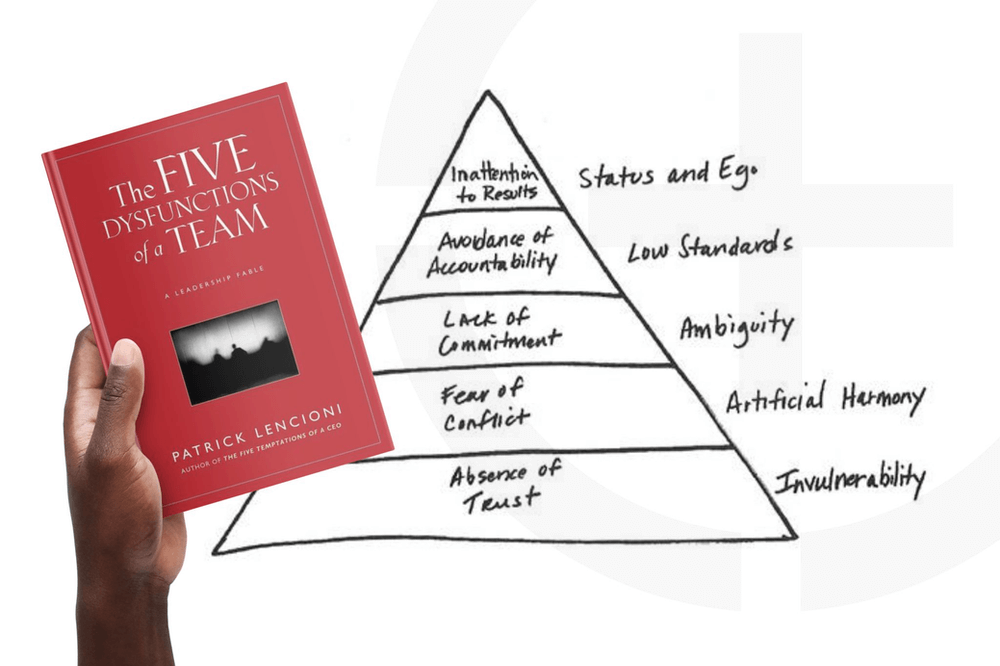Leaders almost always also lead a team, whether that is an Executive Leadership team, a Management team or or a team of workers. So what do you do if you absolutely know or have a good feeling that your team isn’t working together, they are pulling in different directions or just not engaging?
I suggest that the first place you should start is to try to identify what is the key element holding back your team. In my experience the best questions to guide you come from Patrick Lencioni’s book “The Five Dysfunctions of a Team“. I suggest you ask these questions, about the whole team, in the following order. The first question you answer Yes to is the area you should reflect on in regards to your team and is likely to be the place to start focusing on fixing first:
- Is there an absence of TRUST?
- Is there a fear of CONFLICT?
- Is there a lack of COMMITMENT?
- Is there an avoidance of ACCOUNTABILITY?
- Are there inattention to RESULTS?
The reason for asking these questions in that order is that without the first foundation of trust your team can’t build on removing the fear of conflict and you can’t try to remove the lack of commitment without the first two foundational layers and on it goes.
To be clear the five dysfunctions are based on individual fears or desires, within the team, which need to be reduced and this is best done by focusing on the whole team needs and the benefits to the team for doing this.
- The first dysfunction is based on the fear of been vulnerable which prevents team members from building trust with each other.
- The second dysfunction is based on the desire to preserve artificial harmony which stifles productive ideological conflict within the team.
- The third is based on the lack of clarity and/or buy-in that is preventing team members from making decisions they stick to.
- The forth is based on the need to avoid interpersonal discomfort that is preventing team members from holding each other accountable for their behaviour and performance.
- the fifth is based on the pursuit of individual goals and personal status which erodes the teams’ focus on the collective success.
Therefore as a leader, whether you’re the offical leader or not, you can make a difference by:
- Modelling the behaviour the team needs to see
- Talking to either the team leader or to the person who is responsible for the team’s performance and discussing the dysfunctional behaviour you’re seeing. Once you’ve had that discussion I’d encourage you to devise a plan to try to eliminate the behaviour.
- Conduct an assessment to benchmark the behaviour
- Engage with a professional team coach who can assist you with stepping through an overall approach which could lift the performance of the team.
To chat about your business, please email me or schedule a meeting via Calendly.

